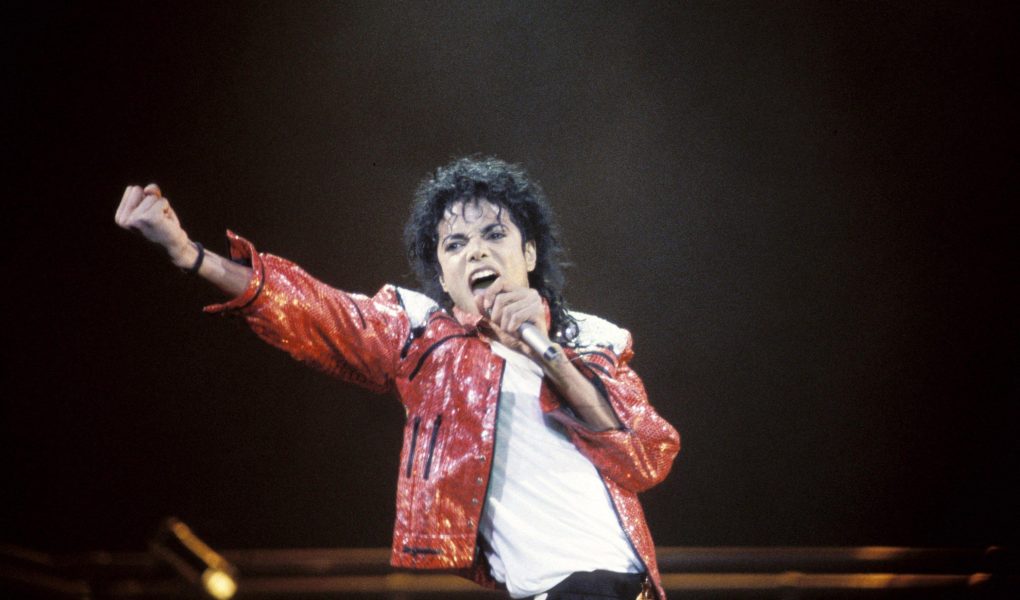lettersforvivian.org – Michael Jackson, often referred to as the “King of Pop,” is widely regarded as one of the most influential entertainers of all time. With his extraordinary talent, groundbreaking music, and iconic performances, Jackson revolutionized the music industry and became a cultural phenomenon. From his early days with the Jackson 5 to his unparalleled solo career, Michael Jackson’s contributions to music, dance, and popular culture continue to inspire generations. His legacy as a performer, innovator, and philanthropist remains a lasting influence in both the entertainment world and beyond.
Early Life and Musical Beginnings
Birth and Family Background
Michael Joseph Jackson was born on August 29, 1958, in Gary, Indiana, to Katherine and Joseph Jackson. He was the eighth of ten children in the Jackson family, a working-class family with strong musical roots. Michael’s father, Joe Jackson, was a strict disciplinarian and a former guitarist who recognized his children’s musical talents at an early age. His mother, Katherine, was a homemaker and a devout Jehovah’s Witness, nurturing a spiritual environment in the household.
Michael’s musical journey began at a very young age. He and his siblings, particularly his older brothers Jackie, Tito, Jermaine, and Marlon, formed the Jackson 5, a Motown band that would go on to achieve international stardom. Michael, despite being the youngest member of the group, quickly became the standout star due to his exceptional vocal abilities, charisma, and stage presence.
The Jackson 5 and Early Stardom
The Jackson 5 were signed to Motown Records in 1968, and Michael was only 10 years old at the time. The group’s first single, “I Want You Back,” became an instant hit, reaching No. 1 on the Billboard Hot 100 chart. Over the next few years, the Jackson 5 released a string of successful singles and albums, including “ABC,” “The Love You Save,” and “I’ll Be There.” The Jackson 5 became one of the most popular acts in the world, and Michael Jackson’s talent and infectious energy helped propel the group to even greater heights.
Despite his success with the Jackson 5, Michael began to feel the strain of his early stardom. As the group’s popularity grew, Michael started to pursue solo projects, and by the early 1970s, he was ready to embark on his journey as a solo artist.
The Solo Career and Rise to Global Stardom
Off the Wall: A New Sound and Image
Michael Jackson’s first solo album, Got to Be There (1972), received positive reviews but did not achieve the commercial success he would later experience. It was his fifth album, Off the Wall (1979), that truly marked the beginning of his solo career and redefined his sound. Produced by Quincy Jones, the album introduced a new, more mature Michael Jackson, combining pop, disco, and funk elements.
Songs like “Don’t Stop ‘Til You Get Enough” and “Rock with You” became international hits, showcasing Michael’s impressive vocal range and unique musical style. Off the Wall was a commercial success, reaching No. 3 on the Billboard 200 and earning Jackson his first Grammy Awards. The album marked a shift in Jackson’s career, both musically and personally, as he began to embrace a more mature image and musical direction.
Thriller: The Album That Changed the World
Released in 1982, Thriller became one of the most successful and influential albums in music history. The album, which featured iconic tracks like “Billie Jean,” “Thriller,” “Beat It,” and “Wanna Be Startin’ Somethin’,” catapulted Michael Jackson into global superstardom. Thriller broke numerous records, including becoming the best-selling album of all time, with over 66 million copies sold worldwide. It won a record-breaking eight Grammy Awards in 1984, further cementing Jackson’s position as one of the greatest artists of his time.
“Billie Jean,” one of the album’s standout tracks, featured Jackson’s signature vocal style and innovative music production, while the song’s accompanying music video featured Jackson’s famous moonwalk dance move. “Thriller,” the title track, featured a groundbreaking music video that included elaborate choreography, special effects, and a horror-themed narrative, setting a new standard for the music video genre. Jackson’s influence on music videos became as significant as his impact on music itself.
Bad: The Continued Evolution of a Superstar
Michael Jackson’s next album, Bad (1987), continued the momentum established by Thriller. Produced by Quincy Jones, Bad featured hits like “Bad,” “The Way You Make Me Feel,” “Smooth Criminal,” and “Man in the Mirror.” The album was another commercial success, selling over 35 million copies worldwide, and it solidified Jackson’s position as a global superstar.
The Bad era also saw Jackson’s evolution as an artist. He was no longer just a pop singer; he had become a cultural icon, influencing fashion, dance, and popular culture on a global scale. Jackson’s music continued to reflect social issues, with songs like “Man in the Mirror” encouraging listeners to make a positive change in the world.
Iconic Dance Moves and Performances
The Moonwalk and Other Signature Moves
One of Michael Jackson’s most enduring contributions to popular culture was his groundbreaking dance style. Jackson revolutionized dance with his unique choreography, including the signature “moonwalk” dance move. The moonwalk, which Jackson first performed during a television special in 1983 while performing “Billie Jean,” became one of the most iconic dance moves in history. The move, which created the illusion of gliding backward while walking forward, was a perfect example of Jackson’s innovation and attention to detail.
In addition to the moonwalk, Jackson was known for other iconic dance moves, including the “robot,” the “spin,” and his signature “kick.” His choreography was often intricate and precise, setting a new standard for pop and dance music performances. Jackson’s ability to combine his vocal talent with his dance skills made him one of the most captivating performers to ever grace the stage.
Legendary Performances
Michael Jackson’s live performances were legendary, and he was known for his electrifying stage presence and innovative use of technology. One of his most iconic performances took place during the Motown 25th Anniversary Special in 1983, where he performed “Billie Jean” and debuted the moonwalk for the first time on television. This performance helped solidify his status as the King of Pop and marked a defining moment in music history.
Jackson’s Bad World Tour (1987-1989) and Dangerous World Tour (1992-1993) were massive global events, drawing millions of fans from around the world. His concerts featured elaborate stage designs, groundbreaking visual effects, and some of the most memorable performances in music history.
Personal Life and Social Impact
Humanitarian Efforts and Charity Work
Beyond his musical achievements, Michael Jackson was deeply committed to humanitarian causes. He used his platform to speak out on issues such as poverty, racism, and global peace. Jackson supported numerous charitable organizations and was involved in a variety of philanthropic activities throughout his life.
In 1985, he co-wrote the charity anthem “We Are the World” with Lionel Richie. The song raised millions of dollars for famine relief in Africa and is one of the most successful charity singles of all time. Jackson also supported children’s hospitals, education initiatives, and organizations dedicated to HIV/AIDS research.
Jackson’s song “Heal the World,” from his 1991 album Dangerous, became an anthem for peace and was a reflection of his deep belief in making the world a better place. His humanitarian efforts left a lasting legacy of generosity and compassion.
Personal Struggles and Public Scrutiny
Despite his success, Michael Jackson’s personal life was often overshadowed by controversy and public scrutiny. His appearance changed dramatically over the years, leading to speculation and rumors about his health and cosmetic procedures. He also faced legal challenges, most notably in the 1990s and 2000s, when he was accused of child molestation. Though he was acquitted of all charges in a high-profile trial in 2005, the allegations had a significant impact on his reputation.
In 2009, Michael Jackson’s sudden death at the age of 50 shocked the world. He passed away from acute propofol intoxication, a result of a cardiac arrest. His death led to an outpouring of tributes from fans, artists, and public figures around the world, mourning the loss of a legend.
Legacy and Influence
The King of Pop’s Enduring Legacy
Michael Jackson’s impact on music, dance, and popular culture is immeasurable. His innovative contributions to music videos, his ability to blend different genres of music, and his groundbreaking dance moves changed the entertainment industry forever. Jackson’s influence can be seen in the work of countless artists who followed in his footsteps, from Beyoncé to Usher to Justin Timberlake.
His albums, particularly Thriller, Bad, and Dangerous, continue to be celebrated for their innovation and enduring appeal. Jackson’s music, with its infectious rhythms, catchy melodies, and powerful messages, continues to resonate with listeners of all ages.
Honoring the King of Pop
Michael Jackson’s legacy is not just about his musical achievements, but also about the positive influence he had on the world. His messages of unity, peace, and love continue to inspire fans worldwide. Statues, museums, and tributes to Jackson can be found around the globe, and his music continues to be celebrated through documentaries, re-releases, and live performances.
Michael Jackson will always be remembered as the King of Pop, a true cultural icon whose contributions to music and society have left an indelible mark on the world.




